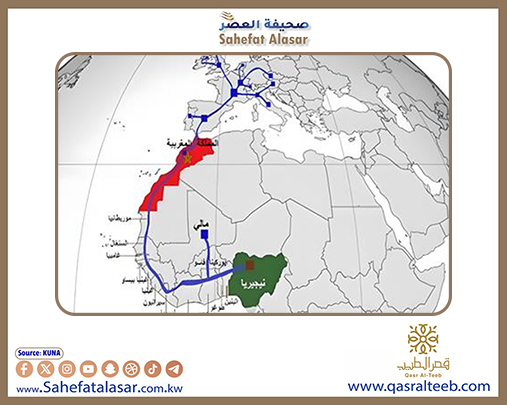


As Sahel countries undergo rapid transformations in pursuit of comprehensive development, the energy crisis—particularly electricity shortages—remains a major obstacle, limiting nations' ability to meet citizens' needs and achieve development goals.
Two landmark projects now offer strategic solutions:
African Atlantic Access Initiative (connecting Sahel states to Atlantic ports)
Nigeria-Morocco Gas Pipeline (renamed Atlantic African Gas Pipeline)
Political Significance:
Symbols of pan-African cooperation
Reflect shared commitment to regional integration
Establish cross-border partnerships to advance development in energy-starved Africa
Economic Impact:
Foundation for industrial/mining/infrastructure investments
Job creation and local growth stimulation
Will uplift living standards in fragile economies
The gas pipeline specifically addresses electricity deficits as both developmental right and strategic priority
Morocco's Leadership:
Initiated these projects as part of its:
Post-2017 AU return commitment
Vision for "a new emergent Africa" (King Mohammed VI)
November 2023 Green March anniversary initiative linking Sahel states (Mali, Niger, Burkina Faso, Chad) to Moroccan infrastructure networks
Current Progress:
Pipeline engineering studies completed (May 2024)
Special purpose company being formed (Morocco-Nigeria)
$25 billion estimated total investment
Will serve 400 million people with gas/green hydrogen
Technical Specifications:
6,800 km pipeline capacity (15-30 bcm/year)
Route: Nigeria → 11 coastal states → Morocco → Europe
Will supply landlocked Sahel nations (Niger, Mali, Burkina Faso)
Ministerial Statement:
Energy Transition Minister Leila Benali confirmed the pipeline will:
Become Africa-Europe's sole energy corridor
Enable regional electricity access
Create fully integrated economic zone
These projects institutionalize:
South-South development cooperation
Logistics integration
Sustainable regional growth
Concrete steps toward Agenda 2063 aspirations
